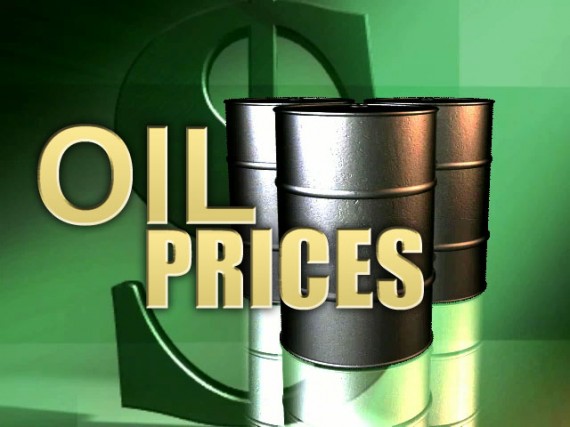The Politics of Oil Company Tax Breaks
Senate fails to revoke tax cuts for big oil.
 Via the NYT: Senate Refuses to End Tax Breaks for Big Oil
Via the NYT: Senate Refuses to End Tax Breaks for Big Oil
In the 52-to-48 vote, 3 Democrats joined 45 Republicans in opposing the bill, which was supported by the Obama administration and fiscal watchdog groups that saw the tax help for the oil industry as wasteful. Forty-eight Democrats, two independents and two Republicans backed it.
[…]
Under the proposal, Democrats would have eliminated five different tax breaks enjoyed by the multinational oil companies, producing an estimated $21 billion over 10 years.
More than $12 billion would have come from eliminating a domestic manufacturing tax deduction for the big oil companies, and $6 billion would have been generated by ending their deductions for taxes paid to foreign governments. Critics suggest that the companies have been able to disguise what should be foreign royalty payments as taxes to reduce their tax liability. The bill would also deny the companies the ability to deduct some intangible drilling and development costs.
The bill would have applied to BP, Exxon Mobil, Shell, Chevron and ConocoPhillips.
No need to naïve about this: clearly the main purpose of this vote was to create a a campaign issue for Democrats. Not only was it clear that the bill could not make it out of the Senate, it was also clear that the Republican controlled House was never going to pick up the bill. So, really, all the Dems want you to know is that the Reps voted on the side of Big Oil and their high gas prices and big profits, etc., etc.
However, it does raise a few questions, the most obvious of which is whether these tax breaks are a good idea (yes, the actually policy question rather than the electoral politics one).
My main question is one linked to the long-term fiscal issues facing the country. Forget the question of whether oil companies are big and bad or even the issue of whether gasoline prices are too high, but what about the fundamental question of whether special tax breaks and specific subsidies are a good idea when the federal government is facing massive annual deficits per annum, which contributes to the long-term debt we all face. These issues (and not just vis-a-vis oil companies) need to be addresses and seriously debated. It strikes me that a phase out of various subsidies of this nature needs to take place, especially when we consider that they tend to get put into place not because of their proven policy efficacy, but rather as a result of the specific industry’s lobbying prowess.
At a minimum, one would like to think (although it certainly appears not to be the case) that ending special tax breaks and subsidies would be an issue that Democrats and Republicans could agree upon, what with Democratic concerns about the power of large corporations and Republican belief in the free market. Of course, Dems are less anti-corp than many think and Reps are nowhere near as pro-free market as they claim to be. Such is politics, especially in a rigid two-party system.
Back to the vote noted above, TPMDC raises an interesting issue: Democrats’ Oil Subsidy Repeal Bill Is Actually Unconstitutional
even if by some miracle it passes, it would have to be shelved. In their zeal to put Republicans on the spot, Democrats neglected one key technicality: eliminating tax loopholes raises revenues, and any legislation that raises revenues must, according to the Constitution, originate in the House of Representatives.
Specifically, the bill might run afoul of the following from Article I:
Section. 7.
All Bills for raising Revenue shall originate in the House of Representatives; but the Senate may propose or concur with Amendments as on other Bills.
I am not 100% certain that a bill that cancels a tax subsidy would be considered to fit under this proviso or not, although I could certainly see how the argument could be made.
Of course, the issue is moot because the proposal is going nowhere.






Taxes are a cost of doing business, for the oil industry or any other industry. If taxes subsidies are terminated, the additional cost to the oil industry will simply be passed on to their customers which in turn will raise the cost of all goods that need to be transported to market and will decrease the disposable income of the average consumer which in turn will strengthen the recession.
All of this will result in a decrease in economic activity which will yield less tax revenue to the federal government, both in terms of income taxes and gasoline taxes.
Does this answer your fundamental question?
@Patrick:
It is an answer (and one I anticipated). It is, however, not as definitive as you think it is. By this logic, we shouldn’t tax companies at all, because they pass 100% of the cost of taxation onto customers anyway.
There is a legitimate debate to be had about the level of taxation, and there is nothing sacrosanct about the current levels.
so theyre essentially holding the economy hostage unless they get to maintain their astronomical profit margins, on the backs of the taxpayer?
I am not 100% certain that a bill that cancels a tax subsidy would be considered to fit under this proviso or not”
Grover would call it a tax hike, and as Grover goes, so go the Republicans (except for maybe Tom Coburn…).
I notice that the dems are all for raising taxes/reducing breaks on the oil industry but not for the likes of GE which makes are higher rate of return and manages to make any/all tax obligations go away through targeted tax breaks and creative accounting. GE is also one of the major backers of the bill to ban incandescent light bulbs so they can sell you more expensive led bulbs. I would believe the dems more if they went across the board instead of a tightly targeted bill. mpw
If taxes subsidies are terminated, some fraction of the additional cost to the oil industry will simply be passed on to their customers
FTFY
You wouldn’t believe the Dems anyway, but regardless, there’s something arguably to be said about low-hanging fruit. Funny to watch alleged conservatives scrambling to defend corporate welfare.
@Steven,
Agreed, we shouldn’t tax companies at all, i.e. we should implement the Fair Tax. (Sorry, I didn’t mean to bring that up but you left that door open for me.)
Well, a good test would be, what do you think would change if the subsidy wasn’t there? Would the oil companies close? No. Would they take their precious oil to another market? No. What about Patrick’s concern re: passing the cost to consumers? Well, spread out over the vast quantity of product the oil companies sell, I’m pretty sure absorbing the lack of subsidy wouldn’t even be visible at the pump, especially if you include all the other products made from oil besides gas, so negligible on that too.
Basically, if the gov’t gets to keep hundreds of millions of $$, and the oil companies can’t even track the change in the rounding errors for their actual profits (let alone gross revenues), and the consumers won’t notice any change at the point of sale, it’s kind of a no-brainer.
IMO the subsidy shoujld be abandoned on the merits. Along with agricultural subsidies of all stripes and many (although not all) subsidies. We’ve distorted the market to the point that nobody can determine the actual price of anything any more.
Note that abandoning the subsidy won’t have much effect on the price of gas at the pump one way or another. The domestic oil companies are small potatoes in the oil game relative to the large foreign state-owned oil companies.
Good to know the Republicans are serious about the deficit.
What Dave said.
We need more uniform tax rates, not tweaks to special privilege.
rick starting with the companies making money and not paying taxes then talk about the companies already paying taxes, that would be the low hanging fruit idea. You might want to look at GE for your fruit. mpw
The result of which would be that the wealthier you are, the more likely you are to incorporate your holdings to avoid taxation, leaving lower and middle class taxpayers holding the bag….
As Leona Helmsley once pointed out, taxes are for little people. It’s a message the GOP has taken to heart.
That makes no sense whatsoever. Why would they incorporate to avoid taxes that wouldn’t exist to begin with?
I don’t think the Dems really care whether the oil companies get a tax break or not.
This vote is just to show how unserious te Republicans are about the closing the budget deficit.
I’ll be happy to represent the layman oaf here. The big issue has been the deficit and spending (rightly or wrongly), and here we have oil companies making tens of billions of dollars in profits and getting tax breaks and/or subsidies. It makes absolutely no sense to me. The argument that eliminating subsidies will result in higher prices at the pump is very weak.
So it’s political…and???
You have a bunch of fiscal frauds proposing to abolish – yes abolish – Medicare, and falling over themselves to preserve corporate welfare.
If it takes political stunts like this to educate folks then have at it.
I’m with Patrick: concentrating as much wealth into as few hands as possible will reinvigorate the american economy. Just think how many jobs will be created once 100% of national income goes to only one person who pays no taxes at all.
We’ll all be rich!
That makes no sense whatsoever. Why would they incorporate to avoid taxes that wouldn’t exist to begin with?
Patrick doesn’t even understand how the Fair Tax he advocates works. Typical.
So they can dodge taxes by buying goods as business inputs rather than at retail.
In principle I agree with doing away with corporate taxes, but I concede that Alex’s point is a real problem. The wealthy manipulate their earnings into different categories more readily than average wage earners. However, if we are going to tax corporations, it makes no sense to give oil companies a subsidy, especially with our looming debt.
Steve
I find this quote interesting from multiple perspectives, “the additional cost to the oil industry will simply be passed on to their customers.” On its face it is a true comment. Corporations/companies pass on increases in cost to their customers in order to maintain profit. Such activity usually keeps the company’s profit margin within the same percentage of earnings though, so it isn’t a 100% transfer — but that is neither here nor there.
These are “tax subsidies” we are talking about. That means that the consumers, at least those who pay taxes, are already having these costs passed on to them. The costs would become more transparent if they were added to the cost of goods rather than incorporated in our taxes. Money taken from our paychecks in the form of taxes limits our spending of capital on other goods just as much as increases in costs on particular goods.
The real question is whether we should be subsidizing — through tax breaks — businesses at all. Should we have a more static tax and require that any “subsidies” actually be grants? How would that change the dynamics of transparency in government transactions? How would that change public perceptions of the activity?
I doubt any court would rule this unconstitutional because it wouldn’t be an additional tax. Essentially, this would be eliminating a write-off. Irregardless Doc, didn’t you know that ALL tax breaks raise revenues? Where were you in the ’80s?
I’d love to see an end to subsidies; whether they are to oil companies or to ethanol companies or to tobacco farmers or any number of other targets.
The idea of raising taxes on unpopular companies bothers me, but that kind of shortsighted populism has a way of getting fixed when the populous realizes that taxing oil companies more causes higher gas prices, taxing big box retailers causes prices for small good to go up, etc.